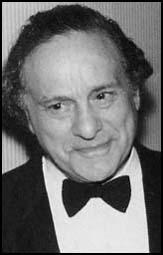 Born in London in 1920, Leo Marks gained fame as a cryptographer during World War II but was also a poet and a screenwriter of some repute later in life. Marks was educated at St Paul’s School in London but did not go to University as many of his peers did.
Born in London in 1920, Leo Marks gained fame as a cryptographer during World War II but was also a poet and a screenwriter of some repute later in life. Marks was educated at St Paul’s School in London but did not go to University as many of his peers did.
He was the son of a bookseller and became interested in code breaking and cyphers when his father showed him a copy of the Edgar Allan Poe work The Gold Bug, a story about solving clues to find a buried treasure.
After that, his father used to put codes inside the books in his shop which the young Marks would pick up and try to decipher. After the outbreak of war, he was conscripted and because of his ability with codes was trained as a cryptographer though he was not entirely popular with his seniors.
Regarded as something of a loose cannon, Marks was posted to the highly secretive Special Operations Executive where he was trained further to help those who operated behind enemy lines.
During his time at the SOE, Marks worked with and briefed many of the heroes of the war including the saboteur team that went into Telemark in Norway and his close friend and double agent famously nicknamed The White Rabbit. One of his first jobs working for the organization was to find a better way of sending encrypted messages which up until then had been using poem cyphers.
Marks wrote a number of poems that were used by agents abroad including the only well-known work of his The Life That I Have which was later memorably used in the script of the wartime spy movie Carve Her Name with Pride. The poem was inspired by his love for a woman who had died in an air crash and is often thought to be related to the head of the SOE at the time.

Marks helped to develop strategies that kept the keys for cyphers safe and greatly reduced the chances that individual agents would be captured by the Gestapo. When communications came through without any errors, he became worried that coded messages from the Netherlands were being run by the Germans and raised his concerns with the heads of SOE but was ignored, a mistake leading to the deaths of perhaps 50 agents in the country.
Marks continued to work on codes and perfecting them during the war. After it was all over, he left the service and began a reasonably successful career as a writer, producing many popular screenplays and publishing accounts of his time during the Second World War. In 1966 he married for the first time to painter Elena Gaussen and was awarded an MBE for his services during the war.
Marks biggest literary success was to write the script for the controversial film Peeping Tom, a story about a serial killer, which was roundly vilified at the time but later hailed as a modern great by the likes of American director Martin Scorsese.
In later life, Marks suffered from financial problems and the breakdown of his marriage and eventually succumbed to cancer in 2001 at the age of 80.

